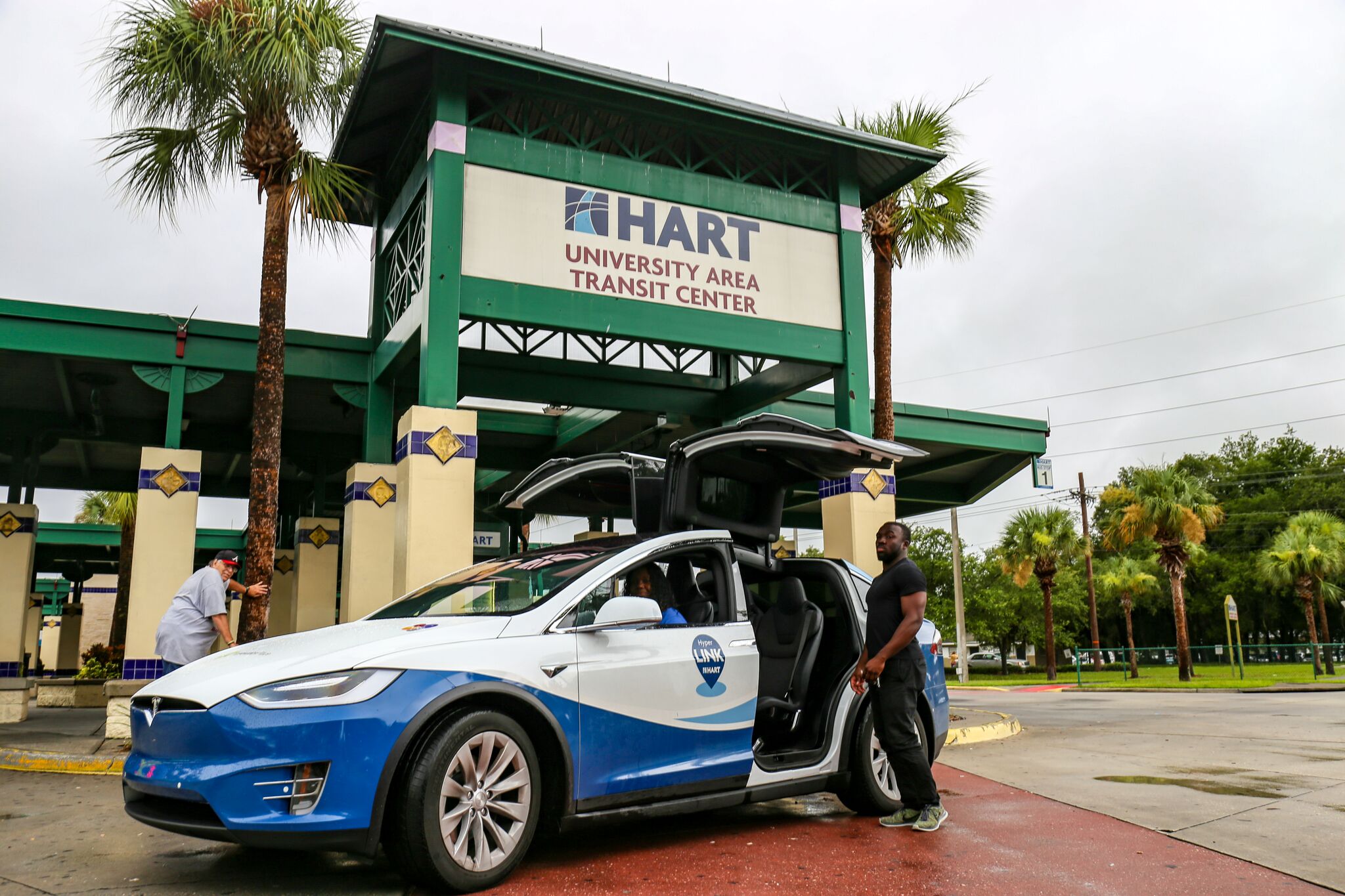Transit at Your Front Door: A First/Last Mile Solution
novembre 6, 2017 — Uncategorized
The first/last mile problem has plagued public transit agencies for decades. What is, truly, the best way to connect people who are a little too far to walk to a bus stop—or to work from a bus stop—to their destination? If we can solve this problem, we can bring new opportunities to boost ridership, provide better access to the community and even, perhaps, give transit agencies new options to distribute their fleets to handle heavy demand.
For the past year Transdev—in partnership with the Hillsborough Area Regional Transit Authority in Tampa, Florida—has been experimenting with the first platform designed to solve the first/last mile dilemma. In four targeted areas, residents have access to our Link service. Operating similarly to current ride-share options, algorithms match passengers with drivers and destinations for a low-cost and slightly subsidized trip to a nearby bus stop or, at the end of a public transit journey, to other destinations in the community. Unlike current ride-share services, the service is electric with the use of Teslas, ADA accessible with lift vans, and Title VI compliant with fare payment made through either the passenger app or cash and those without a smartphone can book through a call center.

The success of this trial gives us reasons to be optimistic about the future of urban and suburban mobility. The Link platform will serve as a crucial piece of the Mobility as a Service puzzle and provides a gateway platform for the introduction of autonomous vehicle operations. That is the future we envision, an on-demand shared ride to public transit or, when circumstances dictate, to a destination within the nearby community itself. It represents our core belief that the future of mobility will be personalized, autonomous, connected and electric. The shared future will help keep single-vehicle cars off roads and expand the ability of shared-ride vehicles to move efficiently from origin to destination.
There is also an economic opportunity that Link creates. While many routes in public transit systems break even or even extend into “profitability” for agencies, there are many routes that equal access dictates we run, even at a substantial loss because of the high subsidies required for their fruition. If, instead, agencies are able to provide an alternative on-demand service—one that still feeds into the public transit system—at a fraction of the cost, then we can redeploy bus resources to improve frequency and headways along popular trunk routes, which will better serve communities.
At Transdev, we see the future of mobility as P.A.C.E. —ever more personalized, autonomous, connected and electric. Link is a personalized on-demand option that will connect more people to transit networks making their commutes easier.
Dick Alexander will speak on the panel “Riding Shotgun: The Future of Shared Mobility” on November 16 during the Cities in Motion Leadership Conference. Join him at LA CoMotion by completing your registration here.